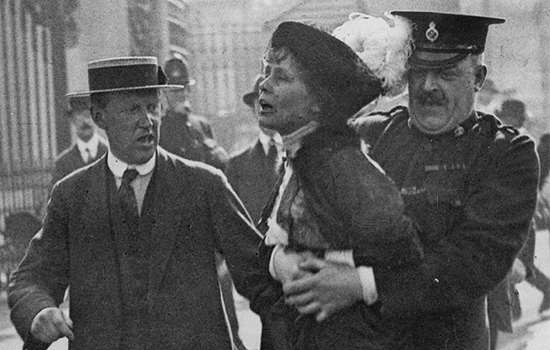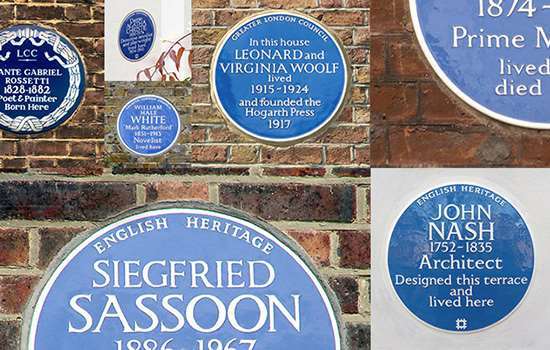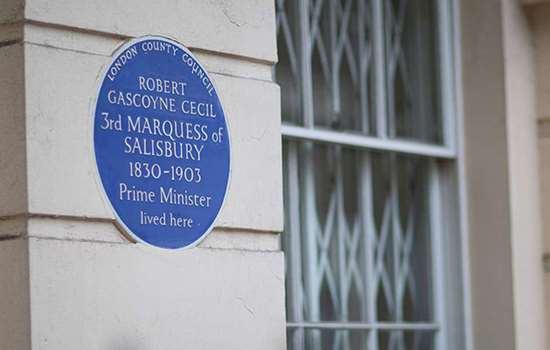BRITTEN, Benjamin, O.M. (1913-1976)
Plaque erected in 2001 by English Heritage at 173 Cromwell Road, South Kensington, London, SW5 0SE, Royal Borough of Kensington and Chelsea
All images © English Heritage
Profession
Composer
Category
Music and Dance
Inscription
BENJAMIN BRITTEN O.M. 1913-1976 Composer lived here 1931-1933
Material
Ceramic
The composer Benjamin Britten is best known for the opera Peter Grimes (1945) and the War Requiem (1962). He is commemorated with a blue plaque at 173 Cromwell Road in Kensington.
Benjamin Britten and his sister Beth moved into number 173 in September 1931, when the building was being run as a boarding house. Benjamin was studying composition under John Ireland at the Royal College of Music while Beth was training to be a dressmaker. They had adjacent rooms on the top floor. When not playing tennis – an abiding passion – Benjamin spent many hours at his digs practising and composing at the piano, on occasion to the irritation of fellow lodgers. One of Benjamin’s visitors, Paul Wright – a fellow singer in the New Madrigal Choir – recalled listening to Britten’s ingenious musical improvisations while seated in one of the ‘uncomfortable, rickety armchairs’ in his eyrie. Wright summed up his youthful host’s persona as ‘formidable’.
Britten’s first professional performance was in 1933, when the BBC broadcast of Phantasy (1932) featured Léon Goossens as oboe soloist. Britten returned to his Suffolk home in Lowestoft that autumn, but was back in his Cromwell Road lodgings a year later on landing a job with the GPO Film Unit. While working there he provided the soundtrack for the WH Auden verse, Night Mail (1936).
In November 1935 Benjamin and Beth moved to a flat in West Hampstead: ‘Anything to get away from boarding houses’, he told a friend. Although he is most readily associated with Suffolk – especially Aldeburgh, where he and his partner, the tenor Peter Pears, started the famous music festival – Britten kept a London base for much of the rest of his life.


